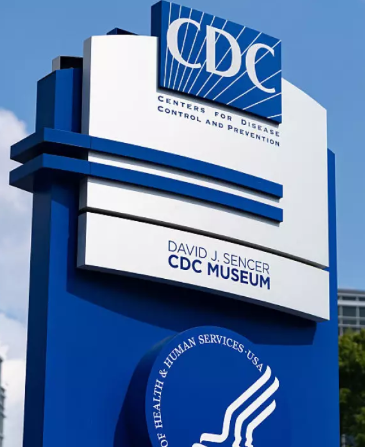Best Free Resources for Traders in 2025: From Charts to AI Alerts
December 01 , 2025

The Centers for Disease Control and Prevention (CDC) provides guidance on vaccines to protect public health in the United States. This article explores the latest CDC vaccine recommendations, their importance, ongoing research, and how vaccination policies impact individuals, families, and communities.
The Centers for Disease Control and Prevention (CDC) plays a critical role in safeguarding public health in the United States. One of its most important responsibilities is developing guidelines for vaccines. By researching, recommending, and monitoring vaccines, the CDC helps prevent the spread of infectious diseases and ensures that Americans have access to safe and effective immunizations. From childhood vaccines to adult boosters, CDC recommendations shape how the nation responds to ongoing health challenges.
Vaccines are one of the most significant medical achievements in history. They have helped eradicate smallpox, nearly eliminated polio, and drastically reduced cases of measles, diphtheria, and other dangerous diseases. The CDC emphasizes that vaccines not only protect individuals but also provide community immunity, reducing the spread of infections among vulnerable populations. This protection is especially important for infants, the elderly, and people with compromised immune systems.
CDC vaccine recommendations are based on extensive scientific research. The Advisory Committee on Immunization Practices (ACIP), made up of medical and public health experts, regularly reviews data on vaccine safety, effectiveness, and necessity. These recommendations are then published and shared with healthcare providers nationwide. This process ensures that vaccination schedules reflect the latest scientific evidence and respond to changing public health needs.
The CDC issues a detailed immunization schedule for children from birth through adolescence. This schedule includes vaccines for diseases such as measles, mumps, rubella, polio, whooping cough, and chickenpox. The goal is to protect children early in life when they are most vulnerable. By following the CDC’s schedule, parents can ensure that their children receive protection at the right ages, minimizing gaps in immunity and lowering the risk of outbreaks.
Vaccination is not just for children. The CDC also provides guidance for adolescents, adults, and older adults. Recommended vaccines include the flu shot, COVID-19 vaccines, the shingles vaccine, and boosters for tetanus and pertussis. Pregnant women are also advised to receive certain vaccines to protect both themselves and their newborns. These recommendations help extend protection across a person’s lifetime and reduce the spread of preventable diseases within communities.
One of the CDC’s most consistent campaigns involves seasonal flu vaccination. Each year, the flu vaccine is updated to target the most common strains expected to circulate. The CDC recommends that nearly everyone six months and older receive a flu shot annually. This guidance is especially important for high-risk groups, including young children, seniors, and people with chronic health conditions. Flu vaccination helps reduce hospitalizations and deaths during flu season.
The COVID-19 pandemic underscored the importance of vaccines in responding to global health crises. The CDC has worked closely with health agencies and vaccine manufacturers to provide guidelines for COVID-19 vaccinations and booster doses. These recommendations have evolved as new variants emerged and as more data on vaccine effectiveness became available. The agency continues to update its guidance to reflect the latest science, ensuring that Americans remain protected against severe illness and hospitalization.
One of the CDC’s key responsibilities is monitoring vaccine safety. Systems such as the Vaccine Adverse Event Reporting System (VAERS) and the Vaccine Safety Datalink (VSD) collect and analyze data on side effects and potential risks. This ongoing monitoring provides transparency and reassurance that vaccines remain safe. When rare side effects are detected, the CDC updates its guidance and works with healthcare providers to address concerns. This commitment to safety builds trust in the vaccination system.
Vaccine hesitancy remains a challenge in public health. The CDC has launched numerous campaigns to provide accurate information about vaccines, dispel myths, and encourage vaccination. By working with healthcare providers, community organizations, and educators, the CDC aims to build confidence in vaccines and emphasize their role in preventing serious diseases. Education and communication remain essential tools in addressing concerns and ensuring widespread immunization coverage.
Beyond routine vaccinations, the CDC plays a vital role in developing and distributing vaccines during public health emergencies. Outbreaks of diseases like Ebola, Zika, and COVID-19 have demonstrated the need for rapid vaccine development and distribution. The CDC collaborates with international organizations, research institutions, and pharmaceutical companies to respond quickly and effectively. Vaccines are central to controlling outbreaks and reducing the human and economic toll of epidemics.
The CDC continues to support vaccine research and innovation. New technologies, such as mRNA vaccines, have revolutionized the field and opened possibilities for developing vaccines against diseases like HIV, malaria, and certain cancers. The agency also emphasizes the importance of global vaccination efforts, recognizing that infectious diseases do not respect borders. By investing in vaccine research and development, the CDC helps ensure preparedness for future health challenges.
The CDC works closely with global health organizations such as the World Health Organization (WHO) to coordinate vaccine strategies worldwide. Immunization programs in developing countries have benefited from CDC expertise, leading to significant reductions in childhood mortality. These collaborations highlight the importance of vaccines not just in the United States but across the globe. By sharing knowledge and resources, the CDC contributes to the broader goal of improving public health internationally.
Vaccines remain one of the most powerful tools in protecting public health, and the CDC’s role in developing and promoting vaccination guidelines is essential. From routine childhood immunizations to emergency responses during pandemics, the CDC ensures that Americans have access to safe and effective vaccines. Through ongoing research, monitoring, and education, the agency continues to build trust in immunization programs. For families, individuals, and communities, following CDC vaccine recommendations remains a vital step toward a healthier and safer future.